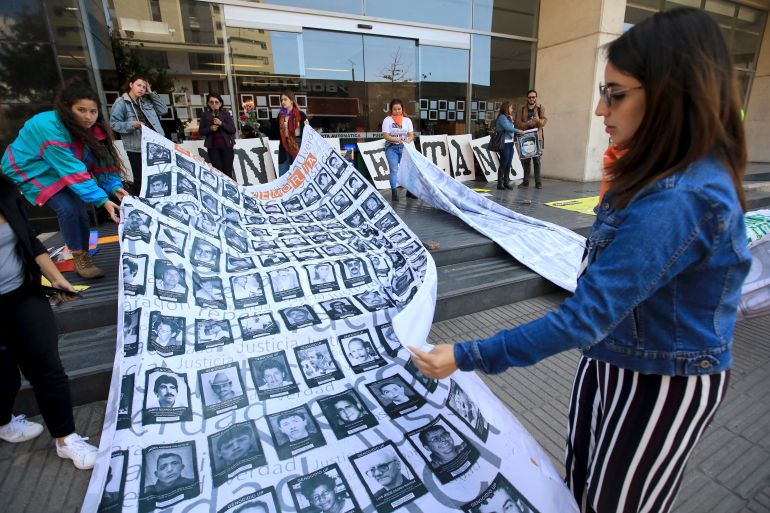Colombian army committed 6,400 extrajudicial killings: Court
Killings allegedly presented as combat deaths to boost perception of military gains in conflict against FARC rebels.

Colombia’s military carried out at least 6,400 extrajudicial killings and presented them as combat deaths between 2002 and 2008, a number that is at least three times higher than previously estimated, a special court has said.
The Special Jurisdiction for Peace (JEP) court is investigating crimes and atrocities committed during half a century of armed conflict between government troops and the Revolutionary Armed Forces of Colombia (FARC), Marxist rebels who laid down their weapons following a historic 2016 peace accord. It has a 10-year mandate.
Keep reading
list of 4 itemsColombia’s FARC adopts new name as it rebrands itself
Rural Colombian groups seek help from new US gov’t amid violence
Killings of Colombia ex-FARC fighters persist amid peace process
On Thursday, the tribunal, which was set up under the peace deal, described the killings in question as “illegitimate deaths presented as combat fatalities”, also known as “false positives”.
Until last year, the public prosecutor’s office had acknowledged only 2,249 executions of civilians between 1988 and 2014 – the majority of which were carried out between 2006 and 2008, during the presidency of Alvaro Uribe, the political mentor of current President Ivan Duque.
While the military high command has denied there was a systematic policy of inflating the numbers of killed left-wing rebels with so-called “false positives”, soldiers and officials have told the court that they were put under pressure by superiors to do so to boost the appearance of success of the government’s military campaign.
General Mario Montoya, who was the army commander at the time, is the highest-ranking military figure to have testified before the court. Witnesses have blamed him for the killings but Montoya has said he did not take part in ordering the execution of civilians.
Montoya’s lawyer, Andres Garzon, denied to the AFP news agency in 2020 that there was a wider military policy to inflate the numbers with extrajudicial killings, arguing that only 2,140 military personnel were currently under investigation, less than one percent of the total number of troops operating at that time.
“That shows there was never a directive to the army to commit such atrocious acts,” he said.
‘Complicity’ by authorities
The JEP is looking into the worst rights abuses committed by both FARC rebels and state actors during the conflict.
Those who confess to being responsible and compensate the victims can avoid prison time, but those who do not face up to 20 years in jail. The court, which was set up in 2018, has yet to convict anyone.
The JEP said the IV Brigade of the army, which operated in the region, “could be responsible for 73 percent of the deaths identified in the department between 2000 and 2013”.
The investigation found most of the killings took place in the northwestern Antioquia department where soldiers and right-wing paramilitaries fought with left-wing rebels.
Some remains of victims have been found in a cemetery in Antioquia thanks to statements made by members of the security forces but the court said those “haven’t been investigated”.
According to Tania Parra, a lawyer representing soldiers who have confessed, Thursday’s report shows there was “complicity” by authorities “to hide” the murders.
But she told AFP that while many investigations are opened, “either there’s no result or … they’re cleared”.
At least 20 of the 219 security forces personnel who have testified before the court are receiving protection after facing threats.
FARC accepts charge
Also on Thursday, former FARC commanders accepted a separate JEP charge that they had committed war crimes and crimes against humanity during the conflict.
The January ruling had been the first time the JEP had attributed criminal responsibility for hostage-taking to former leaders. The former commanders were also accused of other war crimes connected with the treatment of kidnap victims, including murder and torture, among others.
By accepting the accusations, the former commanders could face restrictions on their freedoms for five to eight years. If they had rejected them, the commanders would have faced up to 20 years in prison, per the terms of the peace deal.